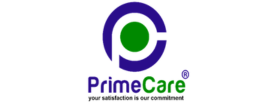
Implementation, Consulting, Auditing & Certification at one place . We focus on taking your business to new heights.
ISO 27001 certification in Dubai refers to the process of an organization obtaining a formal certification or recognition that it has implemented and maintains an Information Security Management System (ISMS) in accordance with the requirements outlined in the ISO 27001 standard.
ISO 27001:2022 is an internationally recognized standard published by the International Organization for Standardization (ISO) that provides a framework for establishing, implementing, operating, monitoring, reviewing, maintaining, and continually improving an organization’s ISMS in Dubai. It sets out a systematic and risk-based approach to managing sensitive information and ensuring its confidentiality, integrity, and availability.
When an organization achieves ISO 27001 certification in Dubai, it means that an independent certification body has conducted an audit and verified that the organization’s ISMS complies with the requirements of the ISO/IEC 27001:2022 standard. The certification demonstrates that the organization has implemented best practices in information security and is committed to protecting its sensitive information and managing security risks effectively.
To obtain ISO 27001 certification in Dubai, you need to follow a series of steps. Here’s a general outline of the process:
Remember, the specific details and requirements may vary based on your organization and the certification body you choose. It is advisable to consult with an experienced ISO 27001 consultant in Dubai or seek guidance from the certification body to navigate the certification process smoothly.
ISO/IEC 27001 certification in Dubai is a voluntary certification that organizations can pursue to demonstrate their commitment to information security and to gain a competitive advantage in the marketplace.
However, certain industries or sectors may have specific regulations or contractual requirements that mandate or encourage ISO 27001 certification. For example, in some cases, government contracts or partnerships with large organizations may require suppliers or service providers to have ISO 27001 certification in Dubai as a prerequisite.
Additionally, ISO 27001:2022 certification in Dubai can be seen as a way to meet legal and regulatory obligations related to information security in various jurisdictions. It helps organizations align their practices with internationally recognized standards and best practices.
Even though ISO 27001:2013 certification in Dubai choose to pursue it to enhance their security posture, protect sensitive information, meet customer expectations, and demonstrate their commitment to information security. It provides a structured framework for managing information security risks and can contribute to building trust and credibility with stakeholders.
The ISO 27001 standard has undergone several revisions since its initial publication. The available versions of ISO 27001 are as follows:
It’s important to note that ISO 27001 certifications can be obtained under any of these versions. However, organizations are encouraged to adhere to the most recent version (ISO/IEC 27001:2022) to ensure they are utilizing the latest best practices in information security management.
ISO 27001 certification in Dubai requires organizations to fulfill several key requirements. These requirements are outlined in the standard and form the basis for establishing and maintaining an effective Information Security Management System in Dubai. Here are the main requirements for ISO 27001:2022 certification in Dubai:
These requirements provide a foundation for organizations to establish a robust information security management system and demonstrate compliance with ISO 27001. It’s important to note that the specific implementation of these ISO 27001 Certification requirements may vary depending on the organization’s size, complexity, and industry sector.
Implementing ISO 27001 Certification in Dubai involves a series of steps to establish and maintain an effective Information Security Management System (ISMS). Here’s a general overview of the implementation process:
It’s important to note that the implementation process may vary depending on factors such as the size of the organization, complexity of operations, and existing information security practices. Seeking the assistance of a qualified ISO 27001 consultant in Dubai or expert can greatly facilitate the implementation process and ensure compliance with the standard.
Implementing ISO 27001 brings several benefits and outcomes for organizations. Here are some of the achievements that can be realized by implementing ISO 27001 in Dubai.
Overall, implementing ISO 27001 contributes to a stronger information security posture, improved business resilience, and enhanced trust among stakeholders. It provides a structured framework for managing information security risks and demonstrates an organization’s commitment to protecting sensitive information.
ISO 27001 certification in Dubai is applicable to any organization, regardless of its size, sector, or location. It is not limited to specific industries or types of companies. Any organization that handles sensitive information, including customer data, intellectual property, financial data, or other valuable information, can pursue ISO 27001 certification in Dubai.
Companies of all sizes, from small businesses to large corporations, across various industries such as manufacturing, IT services, finance, healthcare, e-commerce, telecommunications, and information, including defense, law enforcement, healthcare, and public administration.
Non-profit organizations: donor information, personal data, or other confidential information. Service Providers: IT services, cloud services, managed security services, data centers, software development.
Healthcare Providers: Hospitals, clinics, medical centers, and healthcare organizations that handle patient information and electronic health records (EHR).
Financial Institutions: Banks, insurance companies, investment firms, and other financial organizations that handle sensitive financial data and customer information.
Educational Institutions: Universities, colleges, and schools that handle student records, research data, or other sensitive information.
Third-Party Suppliers: Organizations that provide services or products to other companies, especially if their services involve handling sensitive information on behalf of their clients.
It’s important to note that the decision to pursue ISO 27001 certification is voluntary, and organizations should assess their specific needs, risks, and regulatory requirements to determine if certification is appropriate for them.
An ISO 27001 audit is an assessment process conducted to evaluate an organization’s compliance with the ISO/IEC 27001 standard. The purpose of the audit is to determine whether the organization has effectively implemented an Information Security Management System (ISMS) and meets the requirements specified in ISO 27001 Certification in Dubai.
The ISO 27001 audit can be conducted by an accredited certification body or by internal auditors within the organization.
The ISO 27001 audit process typically involves the following steps:
It’s important to note that the specific details of the audit process may vary depending on the certification body and the circumstances of your organization. The certification body will provide you with detailed guidance and instructions on how to prepare for and undergo the ISO 27001 audit in Dubai.
By implementing ISO 27001 certification offers several benefits to organizations. Here are some key advantages.
The cost of ISO 27001 certification in Dubai can vary depending on several factors, including the size and complexity of the organization, the scope of the certification, Certification Body Fees, Consultancy Fees, Internal Resource Costs, Training Costs, Documentation and Tools and Recertification Costs. If you are still looking ISO 27001 Certification cost in Dubai reach out us we will help you your requirements.
ISO 27001 certification in Dubai can be issued by accredited certification bodies. These certification bodies are independent organizations that have been authorized and accredited by accreditation bodies to conduct ISO 27001 certification audits and issue certificates.
Accreditation bodies are responsible for assessing the competence and impartiality of certification bodies. They ensure that the certification bodies follow international standards and guidelines for certification processes. Accreditation bodies are typically appointed or recognized by national or regional accreditation bodies, such as ANSI-ASQ National Accreditation Board (ANAB), UK Accreditation Service (UKAS), or National Accreditation Board for Certification Bodies (NABCB) in India.
When selecting a certification body to issue ISO 27001 certification, it is important to choose an accredited certification body. This ensures that the certification is recognized and respected internationally. Accredited certification bodies adhere to specific requirements and guidelines, ensuring that the certification process is fair, rigorous, and unbiased.
Yes, ISO 27001 covers various aspects of cybersecurity within its framework for information security management. While ISO 27001 is not solely focused on cybersecurity, it provides a comprehensive approach to managing information security risks, which includes addressing cyber threats.
The standard emphasizes the identification, assessment, and management of information security risks, including those related to cyber attacks, unauthorized access, data breaches, and other cybersecurity incidents. It promotes the implementation of controls and measures to protect information assets and ensure the confidentiality, integrity, and availability of information.
ISO 27001 provides a systematic framework for organizations to establish and maintain an Information Security Management System (ISMS). This includes conducting risk assessments, defining security objectives, implementing controls, and continuously monitoring and improving the ISMS to address emerging cybersecurity risks.
The time it takes to obtain ISO 27001 certification in Dubai can vary depending on several factors, including the size and complexity of the organization, the readiness of the Information Security Management System (ISMS), and the resources dedicated to the certification process. Generally, the timeline for ISO 27001 certification can range from a few months to over a year.
To renew ISO 27001 certification in Dubai, organizations need to undergo a recertification process before the expiration of their current certification. The recertification process is similar to the initial certification process but may be more streamlined since the organization already has an established Information Security Management System (ISMS) in place. Here are the general steps to renew ISO 27001 certification in Dubai:
ISO 27001:2013 and ISO 27001:2022 are different versions of the ISO 27001 standard, each with its own set of requirements and updates. Here are the key differences between ISO 27001:2013 and ISO 27001:2022:
It’s important to note that organizations currently certified to ISO 27001:2013 will need to transition to ISO 27001:2022 before the end of the transition period set by their certification body. The transition period typically ranges from one to three years, depending on the certification body. During the transition, organizations will need to assess and update their ISMS to comply with the requirements of ISO 27001:2022 Certification in Dubai and undergo a recertification audit.
ISO 27001 internal auditing training is designed to provide individuals with the knowledge and skills needed to conduct internal audits of an organization’s information security management system (ISMS) based on the ISO 27001 standard. The training is typically aimed at individuals who are responsible for managing or implementing an organization’s ISMS, or those who are responsible for conducting internal audits of the ISMS in Dubai.
Awareness training is designed to provide employees with a general understanding of the requirements of the ISO 27001 standard, the importance of information security, and their role in ensuring the security of the organization’s information assets. Awareness training typically covers topics such as information security policies, data classification, access control, incident management, and the use of technology. We do provide ISO 27001 Lead implementer training, ISO 27001 Lead Implementer certification, ISO 27001 Lead Auditor training, ISO 27001 Lead auditor certification services to individual employees.
ISO 27001 and ISO 27002 are both standards related to information security management, but they have different scopes and focus areas. Here are the key differences between ISO 27001 and ISO 27002:
ISO 27001: ISO 27001 is the international standard that outlines the requirements for establishing, implementing, maintaining, and continually improving an Information Security Management System (ISMS). It provides a systematic and risk-based approach to managing information security within an organization. ISO 27001 specifies the management framework and requirements for organizations seeking to achieve ISO 27001 certification. It focuses on the process of establishing and maintaining an effective ISMS and does not provide detailed guidance on specific security controls.
ISO 27002: ISO 27002, formerly known as ISO 17799, is a code of practice for information security controls. It provides a comprehensive set of guidelines and best practices for implementing security controls within the framework of an ISMS. ISO 27002 covers a wide range of security domains and provides detailed guidance on the selection, implementation, and management of specific security controls. It addresses areas such as asset management, access control, cryptography, incident management, physical and environmental security, and more.
In summary, ISO 27001 focuses on the overall management system for information security, including the requirements for establishing and maintaining an ISMS. ISO 27002, on the other hand, provides a more detailed set of controls and best practices that can be implemented within the framework of an ISMS to address specific security risks and protect information assets. While ISO 27001 provides the foundation for implementing an effective ISMS, ISO 27002 serves as a reference guide for selecting and implementing appropriate security controls.
ISO 27001:2022 is a revised version of the ISO 27001 standard that organizations can choose to adopt for their Information Security Management System (ISMS). However, it is mandatory to transition to ISO 27001:2022. The decision to transition to the updated version depends on several factors, including the organization’s specific needs, the certification body’s transition period, and any contractual or regulatory requirements.
ISO 27001 consulting services in Dubai are provided by professionals or consulting firms with expertise in implementing and certifying organizations to the ISO 27001 standard. These consultants offer guidance, support, and expertise throughout the entire process of achieving ISO 27001 certification in Dubai. The Best ISO 27001 consultants in Dubai will help in terms of Gap Analysis, ISMS Development, Risk Assessment and Management, Documentation Support, Training and Awareness, Internal Audits, Certification Support and Continuous Improvement.











 swathi likithOur data privacy journey reached new heights with B2BCERT's ISO 27018 certification support. Their consultants not only helped us comply with privacy standards but also ensured that our customers have confidence in our commitment to protecting their personal information.
swathi likithOur data privacy journey reached new heights with B2BCERT's ISO 27018 certification support. Their consultants not only helped us comply with privacy standards but also ensured that our customers have confidence in our commitment to protecting their personal information. balaji bala (benak)Our commitment to occupational health and safety was fortified with B2BCERT's OHSAS 18001 certification support. Their consultants helped us create a safer work environment, instilling a culture of well-being among our employees..
balaji bala (benak)Our commitment to occupational health and safety was fortified with B2BCERT's OHSAS 18001 certification support. Their consultants helped us create a safer work environment, instilling a culture of well-being among our employees.. Nayana ManoharOur journey to GDP certification for pharmaceutical distribution was streamlined and successful thanks to B2BCERT. Their experts ensured that our distribution processes prioritized product safety and quality, giving peace of mind to both us and our clients.
Nayana ManoharOur journey to GDP certification for pharmaceutical distribution was streamlined and successful thanks to B2BCERT. Their experts ensured that our distribution processes prioritized product safety and quality, giving peace of mind to both us and our clients. Prasad GowdaB2BCERT's support in achieving ISO 13485 certification was a turning point in our medical device company. Their focus on product quality and patient safety was unwavering, and we are now a trusted name in the healthcare industry.
Prasad GowdaB2BCERT's support in achieving ISO 13485 certification was a turning point in our medical device company. Their focus on product quality and patient safety was unwavering, and we are now a trusted name in the healthcare industry. Saldagu UmaWe achieved ISO 26000 certification with B2BCERT's assistance, and it has transformed our approach to corporate social responsibility. Their expertise in implementing socially responsible practices has positively impacted our stakeholders and strengthened our reputation."
Saldagu UmaWe achieved ISO 26000 certification with B2BCERT's assistance, and it has transformed our approach to corporate social responsibility. Their expertise in implementing socially responsible practices has positively impacted our stakeholders and strengthened our reputation." Lakshmikanth PSB2BCERT's support in obtaining ISO 50001 certification has revolutionized our energy management practices. Their expertise in energy efficiency and conservation enabled us to reduce costs and environmental impact. Our ISO 50001 certification showcases our dedication to sustainable energy practices.
Lakshmikanth PSB2BCERT's support in obtaining ISO 50001 certification has revolutionized our energy management practices. Their expertise in energy efficiency and conservation enabled us to reduce costs and environmental impact. Our ISO 50001 certification showcases our dedication to sustainable energy practices. Ramya NaikWith B2BCERT's ISO 28000 certification services, our supply chain security received a significant boost. Their supply chain experts ensured that our operations align with global security standards, enhancing our resilience against potential threats.
Ramya NaikWith B2BCERT's ISO 28000 certification services, our supply chain security received a significant boost. Their supply chain experts ensured that our operations align with global security standards, enhancing our resilience against potential threats. ULLAS J NAIKWith B2BCERT, our ISO 27001 certification journey was marked by a heightened sense of cybersecurity. Their consultants not only helped us meet standards but also empowered us to fortify our digital defenses against evolving threats.
ULLAS J NAIKWith B2BCERT, our ISO 27001 certification journey was marked by a heightened sense of cybersecurity. Their consultants not only helped us meet standards but also empowered us to fortify our digital defenses against evolving threats. NACHIKET NAIKB2BCERT's support in achieving ISO 22716 certification for cosmetics manufacturing was invaluable. Their industry-specific knowledge and attention to detail ensured that our products meet the highest quality and safety standards.Showing our latest reviews
NACHIKET NAIKB2BCERT's support in achieving ISO 22716 certification for cosmetics manufacturing was invaluable. Their industry-specific knowledge and attention to detail ensured that our products meet the highest quality and safety standards.Showing our latest reviews
WhatsApp us
